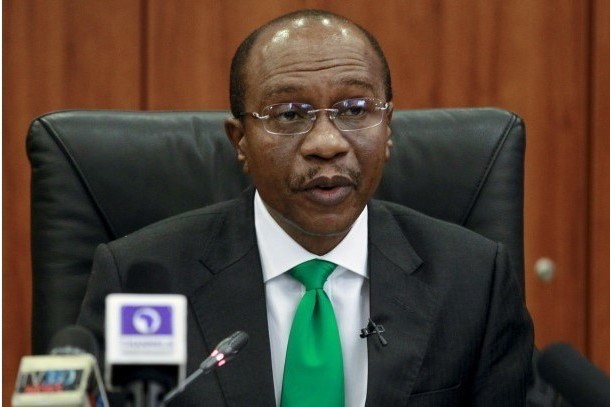Latest News
Nigeria behind in COVID-19 financial response, digital finance – IMF

News Highlight
Unlike other African central banks, the CBN has not lowered the usage costs of digital financial services to promote access during the pandemic.
The latest Financial Access Survey (FAS) released by the International Monetary Fund (IMF) presents progress made in access to financial services such as digital finance and small and medium-sized enterprises (SME) lending. The 11th edition of the report, released on Monday, also includes the IMF's Financial Access COVID-19 Policy Tracker, which documents policies taken by countries across the world to facilitate a move from cash to mobile money transactions and to support financing for SMEs amid the ravaging pandemic.
The 2020 FAS shows Nigeria is behind in digital financial services compared to many of its peers in Africa and other developing regions of the world. The policy response tracker focuses on mobile money and SMEs, although some countries have also shared information on policy responses with regard to other digital financial services.
Policies focused on encouraging the use of digital financial services during the pandemic as tracked by the IMF are classified into four broad categories namely, (i) reduction in transaction fees, (ii) increase in balance and transaction limits, (iii) easing of know your customer (KYC) requirements, and (iv) simplification of transaction processes.
According to the IMF, measures taken by the Central Bank of Nigeria (CBN) during the lockdown put in place to curb the spread of the coronavirus disease included designating mobile money service providers as essential businesses. The apex bank also encouraged the public to limit their use of cash and avail themselves of the use of alternative payment channels such as mobile banking, internet banking, mobile money, point of sale, and USSD.
Data in the IMF tracker, last updated in August, shows the CBN has not lowered the usage costs of these digital services to promote access. By contrast, the Bank of Ghana (BoG) announced on March 20, 2020 an initial three-month period when users were able to send up to GHS 100 without a charge and KYC regulations were eased in the country.
The central bank of Ghana also increased daily transaction limits, mobile money wallet limits, and aggregate monthly transaction limits for all customers. In addition, MTN Ghana's Mobile Money (MoMo) extended the fee waivers as well as access to the revised limits to September 30, 2020.
In Kenya, the central bank issued policy responses in two of the areas identified by the IMF to facilitate digital financial services. The Central Bank of Kenya (CBK) put in place a number of measures, which will apply from March 16, 2020 until December 31, 2020. They include removing charges on mobile money transactions up to KES 1,000. Transaction limit for mobile money were increased and the limit for mobile money wallet was also increased. All charges on transfers between mobile money wallets and bank accounts were eliminated.
The 2020 FAS also highlights the weak progress Nigeria made in financial access before the outbreak of the COVID-19 pandemic. For instance, the value of mobile money transactions in Nigeria grew from 0.46 per cent of gross domestic product (GDP) in 2015 to 1.53 per cent in 2018. In comparison, the value of mobile money transactions in Ghana grew from 19.65 per cent to 74.25 per cent of GDP in the same period.
The number of registered mobile money agent outlets per 1,000 square kilometres (km2) in Nigeria expanded by 22.32 in four years to 45.47 as of 2018, compared to an expansion of 1,392.52 to 1,742.99 in Ghana in the same period.
Per data in the IMF tracker, Ghana had 1,752.51 registered mobile money accounts per 1,000 adults in 2018, compared to 77.20 in Nigeria per the same number of adults. While Nigeria has more automated teller machines (ATMs) per 100,000 adults than Ghana as of 2018; the increase in the number of ATMs in the four-year period ending in 2018 was 0.72 per 100,000 adults in Nigeria compared to 1.52 in Ghana.
In terms of policy measures to help SMEs weather the current pandemic, the measures documented in the tracker have been classified into five categories: (i) debt moratoriums, (ii) loan guarantees, (iii) lower interest rates, (iv) tax relief, and (v) financial assistance. The IMF said these measures would support SMEs, which account for 90 per cent of businesses and 50 per cent of employment worldwide, and contribute up to 40 per cent of GDP in emerging economies.
As part of the COVID-19 response by the CBN to support households and micro, small and medium enterprises (MSMEs) affected by the pandemic, the apex bank introduced a N50 billion Targeted Credit Facility, which is being managed by NIRSAL Microfinance Bank (NMFB). This intervention, recorded in the IMF tracker, shows the CBN has provided a response in only one of the five categories for SME finance, namely financial assistance.
Suffice, however, to say the CBN reduced its monetary policy rate (MPR) from 13.5 per cent to 12.5 per cent in May 2020 and subsequently down to 11.5 per cent in September this year. However, the reduction was not an SME-focused intervention. The moratoriums on repayment of loans ordered by the CBN in March was an intervention for development finance institutions (DFIs), not commercial banks.
Related News
Latest Blogs
- What is most important for Nigeria in 2026
- Restoring asset declaration as a tool of public accountability
- Tackling antibiotic resistance through safer food systems
- Big government, little governance
- What will matter in Nigeria in 2026
Most Popular News
- NDIC pledges support towards financial system stability
- Artificial intelligence can help to reduce youth unemployment in Africa – ...
- FRC Chairman commends NDIC for prompt remittance of operating surplus
- Pan-African nonprofit appoints Newman as Advisory and Executive Boards Chair
- UN adopts new consumer product safety principles
- Dollar slumps as Fed independence comes under fire








